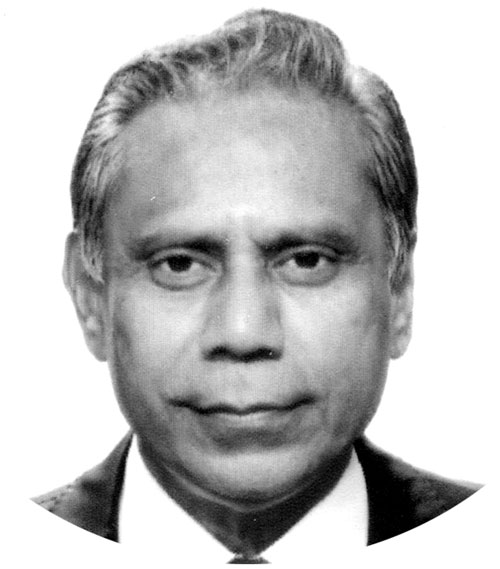Remembering Kashmir Martyrs’ Day
KASHMIR Martyrs’ Day is observed on 13 July, every year to commemorate the sacrifice of the twenty-one Kashmiris, who were killed outside Srinagar Central Jail by the troops of Dogra Maharaja in 1931 during a revolt. There is a background to this painful event, which continues to be memorialized.
Kashmiris have been oppressed since 1846, when the princely state of Jammu and Kashmir was created and despite having an over 95% Muslim population, the state was sold by the British East India Company to Hindu Maharaja Gulab Singh for Rs. 75,00,000. The Hindu monarch treated the Kashmiri Muslims as serfs and unleashed a reign of terror to tyrannize them.
A number of incidents, which occurred in quick succession, sparked the revolt. In the first incident, a leading land-holder in Udhampur Jammu had converted to Islam.
The Hindu Tehsildar sanctioned a fresh mutation of his lands, eliminated his name and mutated the same in the name of his brother.
The land-holder filed a suit that was dismissed with the remarks that unless he re-entered Hindu faith, he was not entitled to any property. This was done in accordance with a decree issued by the Dogra Government on 31 December 1882.
Protest was launched but the Dogra Raj imposed a prohibition on rallies. Defying the ban, a young man Mir Hussain Bakhsh stood up to address the people stating that the Government had been guilty of interference in their religion.
The congregation marched to the city’s main mosque where a brief meeting was held to condemn the incident. It was resolved to hold a protest meeting in the evening. One of the biggest ever gatherings in the city, it was presided over by Mir Hussain Bakhsh.
The Muslims felt deeply hurt, politically suppressed and economically strangulated. The interference in their religious observations aroused deep hatred against the rulers and protest meetings became quite frequent.
The Muslims brought a complaint in the court of “Additional District Magistrate” under Section 296 Ranbir Penal Code against the Hindu inspector for disturbing a religious assembly, which was dismissed because the Hindu Magistrate held that Khutba (sermon) was not a part of the prayers. A large crowd of Hindus in the court premises shouted slogans.
On April 19, 1931, the Dogras banned the Eid sermon, causing widespread outrage of protests. The Dogras tried to suppress the protest with brute force and even desecrated copies of the Holy Quràn, further infuriating the Muslims.
In retaliation, a meeting was held in Khanqah-e-Muella, Srinagar which was attended by prominent Kashmiris.
During the meeting, a young man Abdul Qadir, pointing to the palace of the Maharaja, shouted: “Destroy its every brick.” He was arrested under the charge of sedition and instigating the Kashmiris to defy Dogra rule.
Abdul Qadir, who hailed from Swat, was an employee of an English army officer, Major Butt of the Yorkshire Regiment posted at Peshawar.
Abdul Qadir had been attending the meetings and at Khanqah-i-Muella he was unable to suppress his feelings, which resulted in his impromptu address to the crowd.
His speech was recorded by the CID and when he returned to Naseem Bagh that night, he was followed and arrested on 25 June from the house-boat of his employer and charged under Section 124-A (treason) and 153 of the Ranbir Penal Code. When Muslims learnt of his arrest, there was wide resentment across Kashmir.
The third incident that contributed to the revolt took place on 4 June in the Central Jail Jammu.
According to daily “Inqilab” dated 1 July 1931, Fazal Dad Khan, a police constable from Mirpur, was sitting on a cot when a Head Warder, Balak Ram, reprimanded him for being late on duty.
In the meantime, Labhu Ram, a Sub-Inspector, threw away Khan’s bedding in a fit of recklessness.
It contained a copy of Panjsurah (five chapters from the Quran). Fazal Dad approached the Young Men’s Muslim Association to protest the sacrilege.
While tempers were brewing, yet another event occurred in Srinagar on 20 June 1931 when leaves of the Holy Quran were found in a public latrine.
Enraged Muslims were contemplating a serious protest. Some Kashmiris were reluctant to participate in the protest rally for fear of repression at the hands of the Dogra rulers.
However, a religious leader Maulvi Muhammad Yousuf Shah, at a public meeting held at Hazratbal said: “If we are arrested there is nothing for you to fear. If ten of us are arrested, the other ten must be prepared to take our places”.
The trial of Abdul Qadir was ordered but fearing disturbances and disruption, the high profile case was tried in the courtyard of Srinagar Central Jail where thousands of Muslims gathered awaiting the result of the trial.
On July 13, 1931, while the trial was in progress, the time of Zohar (afternoon) Prayers approached.
A young man arose for “Azan” (call for prayers) but he was shot dead by Dogra policemen. Another young man tried to continue the “Azan”, but he too was shot dead.
Till the completion of the “Azan” twenty one Kashmiris embraced shahadat in the process.
The incensed crowd paraded their mortal remains on their shoulders, demanding justice but to no avail.
Till today, the supreme sacrifice of the lives of the 21 Kashmiris is commemorated every year on 13 July by Kashmiris all over the world as Kashmir Martyrs Day but the plight of the Kashmiris remains the same.
—The writer is retired PAF Group Captain and a TV talk show host.







